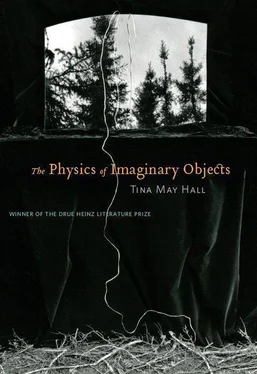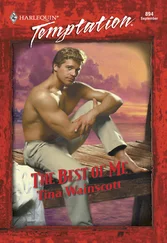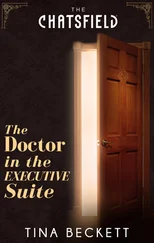Tina Hal - The Physics of Imaginary Objects
Здесь есть возможность читать онлайн «Tina Hal - The Physics of Imaginary Objects» весь текст электронной книги совершенно бесплатно (целиком полную версию без сокращений). В некоторых случаях можно слушать аудио, скачать через торрент в формате fb2 и присутствует краткое содержание. Год выпуска: 2010, Издательство: University of Pittsburgh Press, Жанр: Современная проза, на английском языке. Описание произведения, (предисловие) а так же отзывы посетителей доступны на портале библиотеки ЛибКат.
- Название:The Physics of Imaginary Objects
- Автор:
- Издательство:University of Pittsburgh Press
- Жанр:
- Год:2010
- ISBN:нет данных
- Рейтинг книги:5 / 5. Голосов: 1
-
Избранное:Добавить в избранное
- Отзывы:
-
Ваша оценка:
- 100
- 1
- 2
- 3
- 4
- 5
The Physics of Imaginary Objects: краткое содержание, описание и аннотация
Предлагаем к чтению аннотацию, описание, краткое содержание или предисловие (зависит от того, что написал сам автор книги «The Physics of Imaginary Objects»). Если вы не нашли необходимую информацию о книге — напишите в комментариях, мы постараемся отыскать её.
The Physics of Imaginary Objects,
The Physics of Imaginary Objects — читать онлайн бесплатно полную книгу (весь текст) целиком
Ниже представлен текст книги, разбитый по страницам. Система сохранения места последней прочитанной страницы, позволяет с удобством читать онлайн бесплатно книгу «The Physics of Imaginary Objects», без необходимости каждый раз заново искать на чём Вы остановились. Поставьте закладку, и сможете в любой момент перейти на страницу, на которой закончили чтение.
Интервал:
Закладка:
4
Quietly, I count the months, the phantom dates. For him, I'd like a funeral or a wake, some official way to mourn. I do what every other abandoned lover does — I eat too much or not enough, I cut my hair, I turn and turn. While I begin to think that winter will not end, the black-beaked geese pretend to mate. They grapple desperately because they know the wind that segments flock from flock as they push north; I wish I had a heart to break. I wish I had anything besides this mouth to keep me warm. The birds are ugly in their love — wings beat great plumes of dust, every neck is bent or torn. I trust they find some pleasure in it, or some use, though I imagine it's too early still, too soon in their migration lake to lake.
One morning, early, it's still dark, the flock begins to move. I watch them leave, black-studded strands veering into sky; their patterns are incomprehensible, a line of syllables that fade. The sky brightens; they disappear, leaving the ground beneath them desolate. Except for one gray body, wings flung wide, I guess a casualty of love. This bird I envy for its shapely passion, its care-less, feather-rending pride, the dull eye it turns upon the water, its beak to earth, sharp as a spade.
5
I shovel dirt upon the bird, and every muscle suffers. I ask the dentist how one is expected to recover from a loss like this, a tooth that one has grown for years. He recommends amalgams, metals, shiny bridges; he says to him it would appear my tooth has died inside my mouth and is now infecting others. He orders X-rays, weighs me down with lead and admonitions to stay covered. I move at first so that the bones are blurs. The next set is perfect; everything is clear, detailed as the stories of mass murders and military coups that I collect for weeks then throw away (or lose) in batches — I trace the small stress fractures. They web my oldest teeth, their patterns surreptitious; the dentist mutters.
He says, It must come out. And I agree. But I hesitate to give it over, to sit by patiently while he removes this thing I've carried for so long. He says, abscess, fever, implant , but still I doubt. I meditate on healing as I pay his fee. I schedule an extraction but can't stop touching that disloyal, guilty tooth, can't stop feeling shocked at its defection or imagine it a space, a specially molded crown — my tongue cannot forget despite the dentist's rationale of Novocain and porcelain that something will be gone.
6
Something will be gone , I think as I watch them prep the tray, the silver tools, the suture thread (milky fine like spider webs), the flowery deflated gloves. When pulling teeth, expect a lot of blood , the dentist says before he starts. And then he slips the needle in, and then the dark. I wake, I feel my face; my mouth is numb. The dentist tells me this is good. He asks what I remember, this part, this part? I think I heard a saw, a drill, no, the buzzing of my heart. The dentist keeps on talking, but I am tired — all his words begin to sound like love.
I wake again and search for absence with my tongue. It's there behind the packing, that black space. I eat ice — the cold's supposed to heal. I feel the chill spread from my throat into my lungs. I think I can no longer smell or taste the place where my tooth used to be; an excavation was completed while I slept, while I dreamt of nothing, well, not nothing — I dreamt of sounds, my heart, my heart, a gray streak on a page — I dreamt of nothing real.
7
I dream of nothing real. Winter continues to drag out; I move from north to south to hasten its undoing. Even in the desert, things have closed upon themselves, acacias dead, agaves topped by withered plumes. Monsoon rains have warped my door; the swollen wood protects a house in which nothing costs enough to steal. Inside, the dust has formed a shroud, and sunburst widow's webs festoon the windowsills. A black-bulbed spider decorates each room. I leave them there, a charm, a prayer; their poisonous precision soothes. At night, I swear I hear them spinning, each fat egg-sack an axis, the swollen moon the wheel.
The lizards crawling up my walls have changed from clear to rust. I find their bodies in my cupboards ironed flat by dehydration and line them up outside the door in regiments of waiting. Their parched skins rustle, speaking soon. I wake one morning to whispers of crenulated claws, the red scent of petals crushed. From my bed, I translate sentences of dust the lizards left behind, a souvenir of their departing. The sun has risen earlier today, and as its tissue-papered light inflames the room, I see the tree out-side my window is in bloom.
By the Gleam of Her Teeth, She Will Light the Path Before Her
After dinner, Father folds a swan out of his paper napkin. Mother says, “My, how early it grows dark.” First Daughter laughs at a flickering outside the window. She thinks it is an out-of-season firefly or a spark from the chimney, but really it is someone creeping through the trees with a flashlight.
Father folds triangle over triangle, smaller and smaller, until a head and wings appear. Second Daughter watches the ghost of her grandmother walk around the table and touch everyone's plate. Second Daughter wonders if the dead get hungry and she eats the last corner of her tuna sandwich in one bite so grandmother's ghost will not stand too long by her. Birds fly up from the apple orchard in a cloud blacker than the sky. Only Son screams for his bottle. Mother says, “He has such strong lungs. Perhaps he will be a soldier.”
First Daughter goes to the fireplace and pretends to do homework. She writes numbers in long columns and eats the eraser of her pencil in secretive nibbles. Second Daughter follows grandmother's ghost into the kitchen and catches her trying to chew through the rims of cans. Second Daughter wonders if the dead feel pain. She whispers, “Stop,” and grandmother's ghost throws a can of pureed tomatoes at her. Father places the swan in the bowl of grapes where it rocks over the uneven fruit and watches everyone out of its mustard-spot eye.
Mother clears the plates from the table. She says, “Goodness, these dishes are so clean, I don't believe they need washing.” Father tears Mother's napkin into small pieces. In the garden, rows and rows of green beans tangle closer for warmth. The eggs in the henhouse mutter in their sleep. The light outside the window draws closer. Second Daughter sees it and knows what it is. Someone is moving through the forest toward them.
Only Son screams because grandmother's ghost is biting his upper arm. Mother says, “Perhaps he will be a stockbroker.” First Daughter throws her wool mitten into the fireplace to see the yellow smoke. She loves things for the colors they burn. Mother says, “What is that smell?” Grandmother's ghost flies shrieking up the chimney. Second Daughter wonders if the dead can get stuck in small places, and Only Son screams because he is growing older. Father touches the swan's wing with the brown tip of his finger and imagines holding a grape in his cheek, not biting it, just feeling its roundness.
First Daughter wishes she could burn everything. First Daughter wishes she could set her whole body on fire.
Mother says, “When the wind howls like that it means snow.” Father pinches the swan's beak so it opens and closes as if repeating Mother's words. Mother and Father both think of the garden and the tender asparagus, which sells for two dollars a bunch. Later, they will have to cover everything in burlap, as if pulling the covers up over their children. Mother remembers her own mother sitting by her bed on fever nights. Mother remembers planning her trousseau, remembers begging for the white silk nightgown, now yellow as an egg yolk in the upstairs closet. Second Daughter points to the window where the flashlight shines. Everyone looks at the window. Mother says, “My, the moon is bright tonight.” Only Son screams. He can't remember what moon is, but he thinks it means winter.
Читать дальшеИнтервал:
Закладка:
Похожие книги на «The Physics of Imaginary Objects»
Представляем Вашему вниманию похожие книги на «The Physics of Imaginary Objects» списком для выбора. Мы отобрали схожую по названию и смыслу литературу в надежде предоставить читателям больше вариантов отыскать новые, интересные, ещё непрочитанные произведения.
Обсуждение, отзывы о книге «The Physics of Imaginary Objects» и просто собственные мнения читателей. Оставьте ваши комментарии, напишите, что Вы думаете о произведении, его смысле или главных героях. Укажите что конкретно понравилось, а что нет, и почему Вы так считаете.












